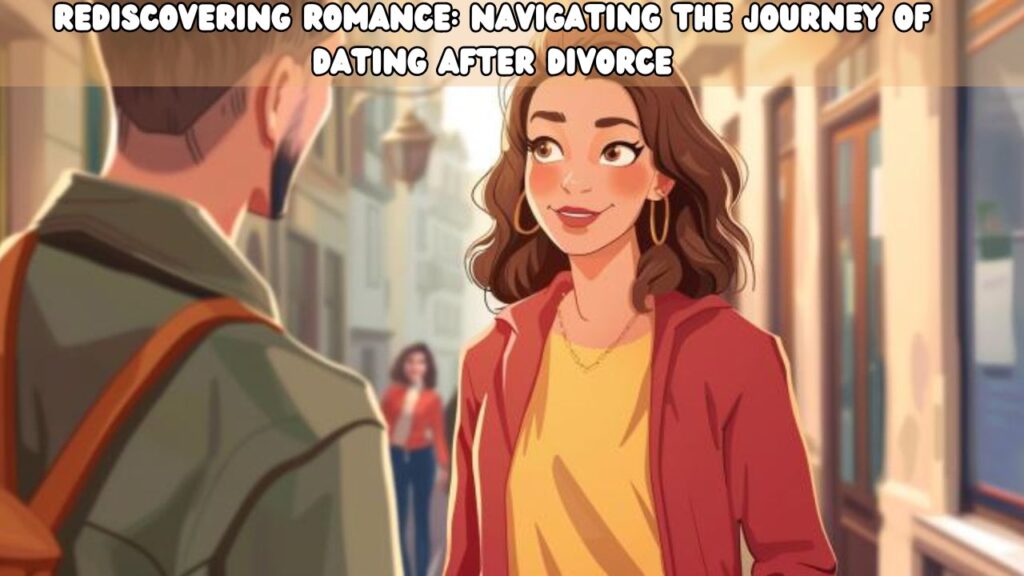The First Steps Back into Dating

Stepping back into the dating world after a significant pause can feel like navigating uncharted waters. Whether you’ve been out of the dating game for a few years or a few decades, the landscape has likely changed. This section is designed to ease you back into the dating scene with confidence. We’ll cover how to rebuild your self-assurance, compare modern dating platforms, and share practical advice for making your first date not just manageable but enjoyable.
Rebuilding Your Dating Confidence
Rebuilding confidence is crucial in your journey to start dating again. Confidence stems from within; therefore, begin by working on yourself. Focus on your strengths and achievements, and remember that your worth isn’t defined by your past relationship. Engaging in activities that make you feel good about yourself, such as exercise, hobbies, or professional accomplishments, can boost your self-esteem. Additionally, dress in a way that makes you feel attractive and confident—a simple action that can profoundly affect how you feel about yourself. Remember, confidence is attractive, and feeling good about yourself will shine through to others.
Exploring Dating Platforms: Online vs. Traditional
In today’s digital age, online dating platforms can be valuable tools for meeting new people, especially when traditional venues like bars, clubs, or social gatherings aren’t as appealing or accessible. Online dating offers the convenience of getting to know someone at your own pace and in the comfort of your home. However, it’s essential to choose the right platform based on the type of relationship you’re looking for. For those who prefer a more traditional approach, community groups, clubs, and mutual friend introductions offer a personal touch and the chance to meet someone with shared interests. Consider what feels most comfortable for you, and don’t hesitate to try a mix of both methods to see what works best.
Preparing for the First Date: Tips and Strategies
Preparing for your first date after divorce can be nerve-wracking, but planning can help alleviate some of the stress. Start with setting the date in a comfortable, neutral location like a coffee shop or a park where you can talk and get to know each other without too much pressure. Keep the conversation light and focus on learning about your date’s interests, experiences, and aspirations. It’s important to listen actively and show genuine interest in what they have to say. Before the date, it can also be helpful to think about conversation starters or questions you might ask to avoid awkward silences. Lastly, go into the date with a positive mindset, aiming to have a fun and engaging experience, regardless of whether it leads to a second date.
Navigating New Relationships

Entering into new relationships after a divorce can be a thrilling yet complex endeavor. As you meet new people and form new connections, it’s essential to navigate these relationships with wisdom and mindfulness. This section will guide you through maintaining a healthy perspective on your past experiences, the critical role of communication and honesty in building strong relationships, and understanding the dynamics of rebound relationships. These insights aim to foster healthy and fulfilling relationships that are built on trust, respect, and genuine affection.
Keeping Past Experiences in Perspective
When embarking on new relationships, it’s important to keep your past experiences in perspective. Your previous relationship can offer valuable lessons about what you value in a partner and what you might do differently in your future interactions. However, it’s vital to avoid projecting past grievances or expectations onto new partners. Each new person you meet deserves the chance to be seen for who they are, not as a comparison to your ex. Use your past as a guide, not a roadmap. By doing so, you ensure that your past informs your decisions without dictating them, allowing new relationships to flourish on their own merits.
Communication and Honesty in New Relationships
The foundation of any strong relationship is built on the pillars of communication and honesty. As you navigate new relationships, prioritize open and honest dialogue. This means expressing your feelings, desires, and expectations clearly and respectfully, and encouraging your partner to do the same. It also involves being open about your divorce and the lessons you’ve learned from it, as appropriate. Effective communication fosters a deeper understanding and connection between partners and helps prevent misunderstandings that could escalate into conflicts. Remember, being honest isn’t just about speaking your truth—it’s also about being receptive to hearing your partner’s perspective.
Understanding the Dynamics of Rebound Relationships
Rebound relationships are those that start soon after a significant relationship ends. While these relationships can provide comfort and fill a void left by your previous partnership, they can also complicate your emotional healing. It’s important to assess whether you’re entering a new relationship for the right reasons—are you genuinely interested in this person, or are you primarily seeking to avoid loneliness or pain? Be mindful of the pace at which your new relationship progresses; moving too quickly can overshadow unresolved issues from your divorce. By understanding these dynamics, you can navigate rebound relationships more wisely, ensuring that your new connections are healthy and genuinely supportive.
Long-Term Goals and Expectations

As you navigate the waters of new relationships post-divorce, it’s essential to think about your long-term goals and what you expect from a future partner. Clear goals and well-managed expectations can greatly enhance the quality and satisfaction of your romantic endeavors. This section will help you define what you seek in a future relationship, guide you in managing both your expectations and those of your partner, and discuss the influence of family and friends as you forge new romantic paths.
Defining What You Want from a Future Relationship
Before you dive deep into the dating world, it’s crucial to have a clear understanding of what you’re looking for in a relationship. Reflect on your previous experiences and consider what aspects you enjoyed and what you’d prefer to avoid. Think about the values that are most important to you—such as honesty, respect, independence, or humor—and how those align with your lifestyle and long-term goals. Are you looking for a companion to share everyday moments with, or someone who shares your passion for travel, arts, or outdoor activities? Defining these criteria will help you navigate toward a relationship that truly satisfies your desires and needs.
How to Manage Expectations: Yours and Your Partner’s
Managing expectations is a delicate balance in any relationship, especially when you’re dating after a divorce. It’s important to communicate your expectations clearly and to understand and respect those of your partner. This involves honest conversations about each other’s needs, desires, and boundaries. Be realistic about what you can offer and willing to compromise where necessary. Encourage openness and ongoing dialogue to ensure that both partners feel heard and valued. This mutual understanding can prevent disappointments and misunderstandings, fostering a supportive and enduring relationship.
The Role of Family and Friends in Your New Relationship
Family and friends play a significant role in your journey through new relationships. Their support can be invaluable, providing comfort and advice based on their understanding of who you are and what you’ve been through. However, it’s important to maintain boundaries and ensure that your loved ones’ involvement does not overwhelm or dictate the course of your new relationship. Communicate with your family and friends about your needs and expectations regarding their role. At the same time, gradually introduce your new partner to your circle, allowing them to form their own connections and establish a place within your existing social framework. This integration can help build a supportive network around your new relationship, enhancing its strength and resilience.







You may like
Setting Boundaries in Romantic Relationships: A Path to Healthy Love
Laughing Together: The Role of Humor in Healthy Relationships
How to Support Your Partner Through Mental Health Challenges